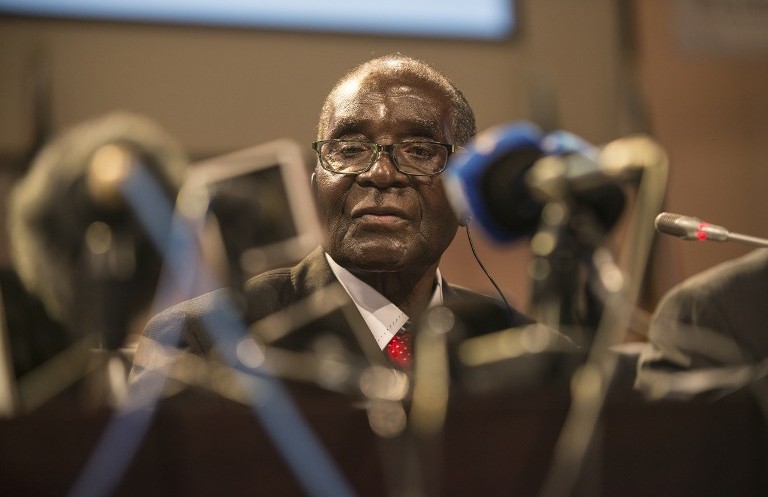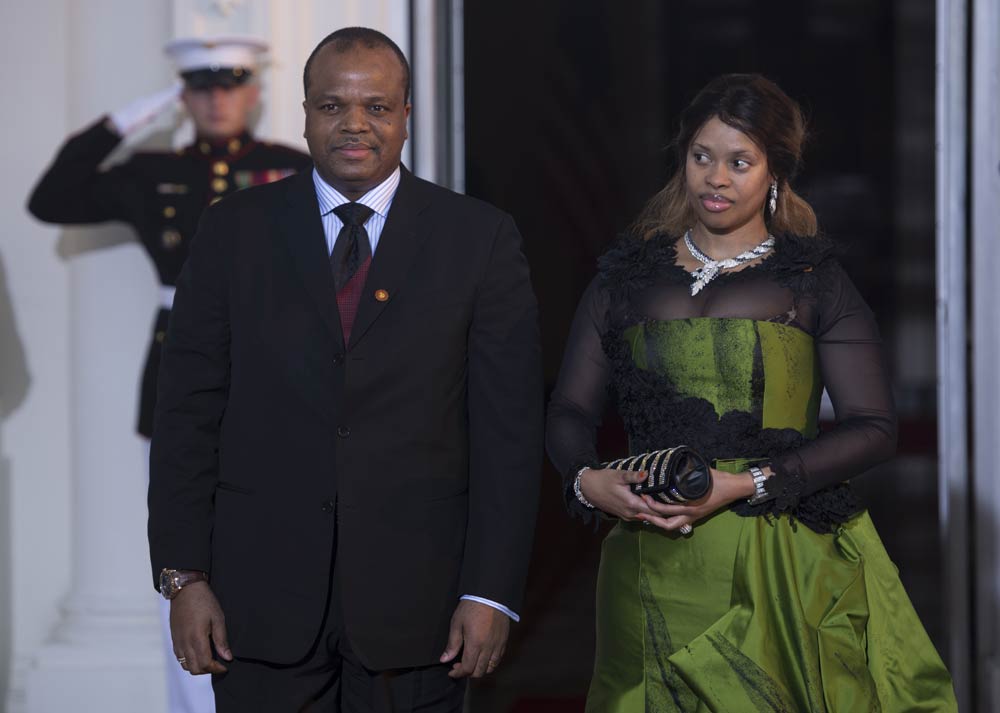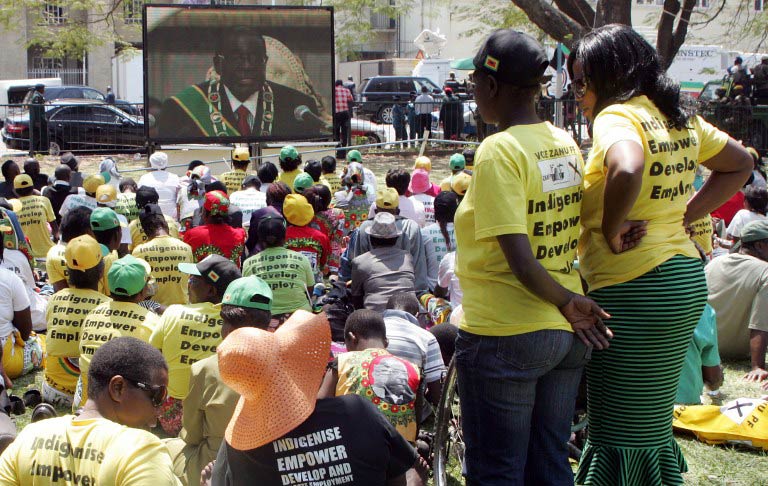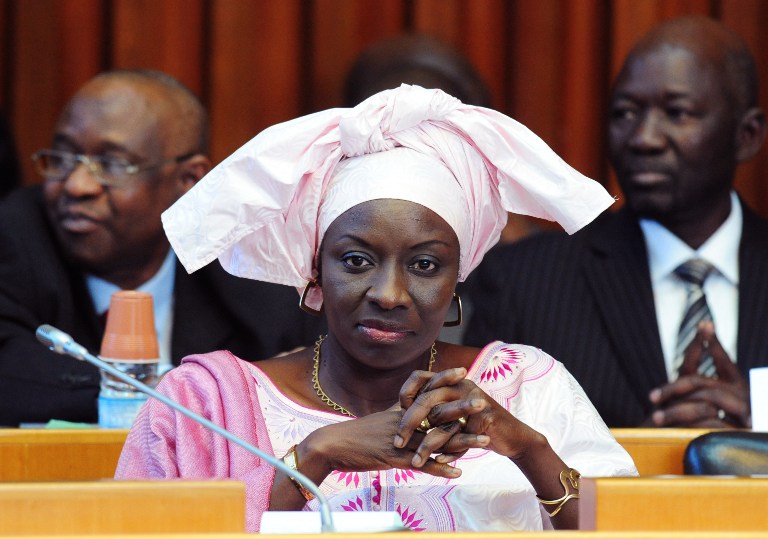
Last week, yet another cabinet reshuffle was announced in Zimbabwe, with one more Zanu-PF minister, Joel Biggie Matiza, losing his position barely six months after assuming it. His removal followed the grand purge of multiple cabinet members — including former presidential affairs minister Didymus Mutasa and former vice-president Joice Mujuru — late last year on allegations of leading and encouraging party factionalism against President Robert Mugabe.
But while Matiza was the only removal of this latest process, the largest media space has been reserved for news of the reassignment of Jonathan Moyo from the Ministry of Media, Information and Publicity to the Ministry of Higher and Tertiary Education, Science and Technology Development.
The enigmatic Moyo — who recently had a public Twitter spat with the former governor of South Africa’s Reserve Bank, Tito Mboweni — is rumoured to have been removed from his position as a result of deepening friction between him and Emmerson Mnangagwa, one of Zimbabwe’s two vice-presidents. Ironically, Moyo’s 2005 ouster from Zanu-PF is attributed to his keen involvement in a factional plan to bring Mnangagwa to the then-vacant post of vice-president, a position that was assumed by Mujuru until her expulsion.
Factionalism is indeed the staple offering of Zimbabwean politics at the moment, with the MDC — that once potent opposition — following suit with Morgan Tsvangirai’s own purge of 21 party parliamentarians on grounds of factionalism earlier in the year. As one joke goes, “If you send two Zimbabweans to the moon, they will come back with three political parties.”
The humour and bizarreness of it all aside, I am perpetually disconcerted by what gets amplified, and left out, in discussions around these ongoing purges. Take for instance, the terminology used to describe Moyo’s reassignment to the tertiary education ministry. This has largely been deemed a “demotion”; a control measure to put Moyo back “in his place”.
With a track record as a ministry where wayward Zanu-PF politicians are sent for “punishment” or as an “in-between place”, the negative connotations associated with this portfolio are hardly new. Former finance minister Herbert Murerwa was once “demoted” to this post in the same way that the late Stan Mudenge (once minister of foreign affairs) was meted out this same fate. In more recent times, the post has fallen to Olivia Muchena (who was removed from cabinet along with Mutasa and others) and Oppah Muchinguri, who replaced Muchena after vacating the Women’s Affairs, Gender and Community Development ministry as rumours swelled that First Lady Grace Mugabe would take up the Cabinet position.
I am well aware that not all ministerial positions are perceived to be equal in terms of power and influence when it comes to political manoeuvring. I am also aware of the reported hierarchal ordering with Zanu-PF’s politburo; a strategic line of succession to the presidential position. But something is very wrong when a ministry of tertiary education comes to be seen as the proverbial sacrificial lamb of a cabinet; a position of so little consequence that it relegates its occupier to near oblivion. That is saying a lot for a portfolio supposedly dealing with one of the Zimbabwean citizenry’s fundamental needs; education. And it would appear the gender ministry suffers a similar negative perception as, until the appointment last week of Nyasha Chikwinya to the post of minister, that position had been vacant since December last year.
If there was ever a time that these two portfolios could be deemed inconsequential, now is not it. Strikes, and threats thereof, have become the modus operandi of many state tertiary institutions. In March, following a lecturers’ strike over outstanding salaries, the University of Zimbabwe shut down abruptly, with students forced to vacate halls of residence indefinitely, the university reopening a day later against mounted pressure. Ironically, this was at a time when the strong #RhodesMustFall student movement in South Africa was influencing widespread debate and discussion around race, power and oppression, all leading to the removal of the statue of Cecil John Rhodes on the grounds of the University of Cape Town.
I recall once having a conversation with an influential media executive with a large local company who remarked that she would always think twice before hiring a local graduate, favouring working with the few returning Zimbabwean students trained at western universities, or in South Africa.
“I don’t have to start from scratch teaching them basic things like how to work digital programmes and equipments,” she said, alluding to the fact that where learning does occur, it often proceeds with demotivated staff and outdated and scarce equipment.
“Time is money.”
So vast has become the rift.
What, then, are the chances of young local Zimbabwean graduates being professionally competitive if they are not attractive — even to their own job market, which, mind you, remains severely compromised by excruciating levels of unemployment?
Recently, also, Prosecutor-General Johannes Tomana spoke in defence of courts that did not jail paedophiles who could “prove” that they had gained sexual consent from girls as young as 12. In his comments, which raised widespread uproar, he also recommended marriage for these young girls (to their sex offenders) as an alternative to poverty. In a survey conducted by Plan International and presented to Parliament last week, it was found that 58% of people within community settings did not see anything morally wrong with sleeping with underage girls.
Given these staggering challenges, and many more, Zimbabwe doesn’t really have the luxury of calling any one of its ministerial portfolios “inconsequential” or “unimportant”.
As enthralling and immersive as factionalism has come to be, it seems we have lost sight of the fact that it serves as yet another distraction from serving and representing our genuine interests, and those of many Zimbabweans not afforded much privilege to articulate their own grievances. The question, perhaps, is whether it actually matters to still have genuine interests within a media and political landscape that favours characters over causes, and sectarianism over service.
No doubt, Zimbabwe is currently suspended in a perpetual game of musical chairs, with politicians across the spectrum scrambling for scarce seats of power as we spectate.
But what happens when the music stops, no one really knows.
Fungai Machirori is a blogger, editor, poet and researcher. She runs Zimbabwe’s first web-based platform for women, Her Zimbabwe, and is an advocate for using social media for consciousness-building among Zimbabweans. Connect with her on Twitter.





